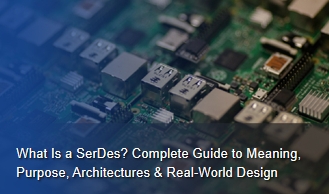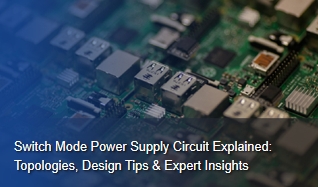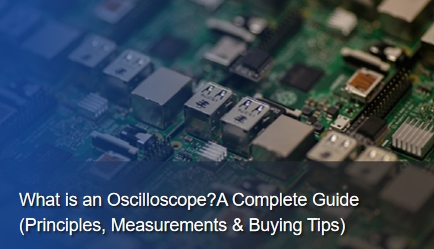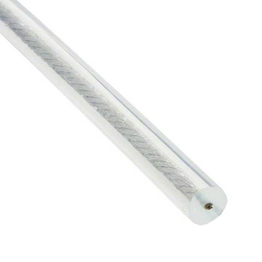Navigating the World of Interface Chips: Key Technologies, Applications, and Future Trends
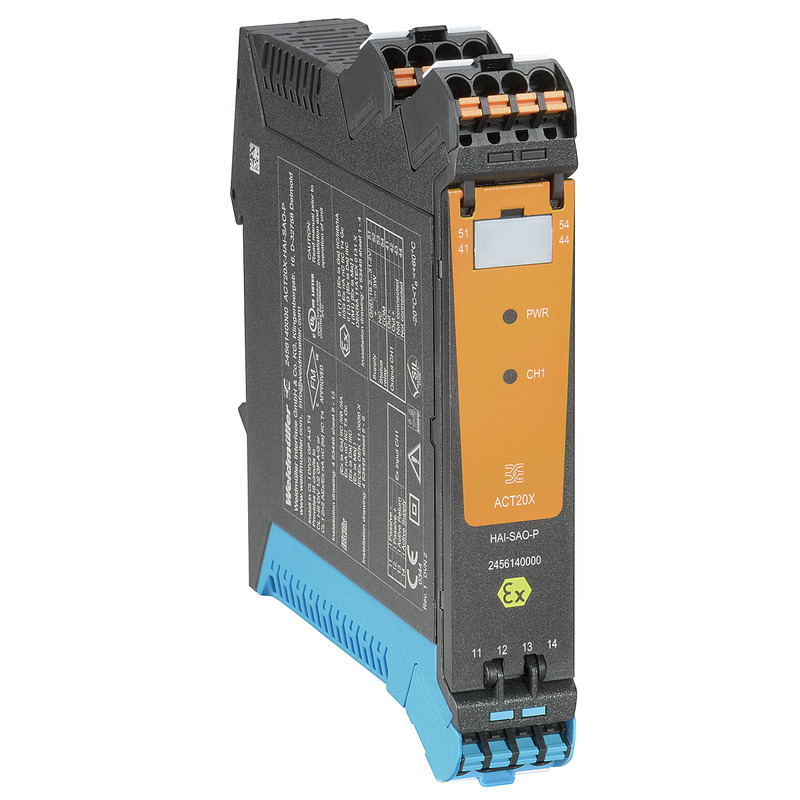
In today's interconnected electronic landscape, interface chips serve as the crucial bridges that link various electronic components and systems, ensuring seamless data transfer and communication. These versatile components are foundational to the functionality of countless devices across diverse industries. From enabling connectivity in consumer electronics to driving innovations in automotive and industrial applications, interface chips are indispensable in modern technology.
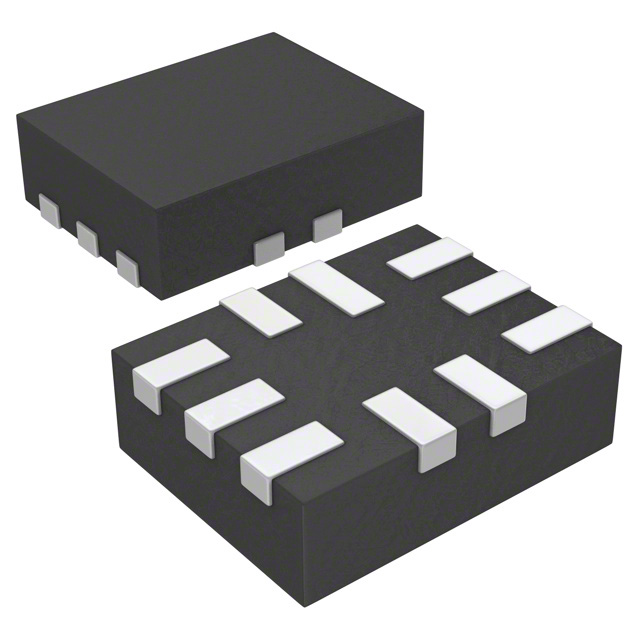
In this comprehensive guide, we will explore the fundamental aspects of interface chips, delve into their various types and applications, and examine the latest technological advancements and trends. We will also highlight unikeyic Electronics, a leading distributor known for its extensive range of high-quality interface chips. Finally, we will address some frequently asked questions (FAQ) to provide further insights into the world of interface chips.
Understanding Interface Chips: An Overview
Interface chips are specialized integrated circuits designed to facilitate communication between different electronic systems. They perform essential functions such as data conversion, signal processing, and connectivity, enabling devices to interact with one another seamlessly.
Key functions of interface chips include:
Data Conversion: Transforming data between different formats or protocols (e.g., digital-to-analog, analog-to-digital).Signal Processing: Enhancing and managing signals to ensure accurate transmission and reception.Connectivity: Establishing and maintaining communication links between various components or systems.
By performing these functions, interface chips enable diverse electronic systems to work together efficiently, enhancing overall system performance and reliability.
Types of Interface Chips and Their Functions
There are several types of interface chips, each designed to handle specific communication protocols and data types. Here are some of the most common types:1. Serial Interface ChipsUART (Universal Asynchronous Receiver-Transmitter): Facilitates serial communication between devices, commonly used in computer serial ports and embedded systems.SPI (Serial Peripheral Interface): Provides high-speed communication between a microcontroller and peripheral devices, such as sensors and memory.I2C (Inter-Integrated Circuit): Enables communication between multiple integrated circuits on the same board, often used for low-speed data exchange in microcontrollers.
2. Parallel Interface ChipsParallel Data Buffers: Manage the simultaneous transfer of multiple data bits, often used in high-speed data applications like computer memory and printers.
3. USB Interface ChipsUSB Controllers: Facilitate communication between devices and computers via USB ports, supporting various USB standards (e.g., USB 2.0, USB 3.0, USB-C).
4. Ethernet Interface ChipsEthernet Controllers: Enable wired network communication by handling Ethernet protocols and managing data packets for networking applications.
5. CAN Bus Interface ChipsCAN Controllers: Facilitate communication between devices in automotive and industrial networks, managing data transfer over the Controller Area Network (CAN) bus.
6. RFID Interface Chips
RFID Readers/Writers: Manage communication with RFID tags for applications such as inventory tracking and access control.
Applications Across Industries
Interface chips are integral to a wide range of applications, each demanding specific performance characteristics:1. Consumer ElectronicsIn consumer electronics, interface chips are essential for enabling connectivity and functionality in devices like smartphones, tablets, and smart home devices. They manage data transfer between internal components and external peripherals, ensuring smooth operation and user experience.
2. AutomotiveIn the automotive industry, interface chips play a crucial role in infotainment systems, navigation, and advanced driver assistance systems (ADAS). They enable communication between various vehicle systems, enhancing safety, navigation, and entertainment features.
3. Industrial AutomationFor industrial automation, interface chips are used in machinery, robotics, and control systems. They manage data communication and control signals, ensuring efficient operation and monitoring of industrial processes.
4. Healthcare
In healthcare, interface chips support medical imaging devices, monitoring equipment, and diagnostic systems. They ensure accurate data transfer and connectivity, which is critical for effective diagnostics and patient care.
Technological Advancements and Future Trends
The field of interface chips is continuously evolving, with advancements that enhance performance, efficiency, and capabilities. Key trends include:1. Increased Data Transfer SpeedsAdvancements in interface chip technology have led to faster data transfer rates, supporting higher-resolution displays, quicker data processing, and improved overall system performance.
2. MiniaturizationAs electronic devices become smaller and more compact, interface chips are designed to be more compact as well, allowing for integration into space-constrained applications without compromising performance.
3. Enhanced Power EfficiencyModern interface chips are engineered to operate with reduced power consumption, contributing to energy efficiency and longer battery life in portable and battery-powered devices.
4. Integration with Emerging Standards
Interface chips are increasingly designed to support new communication standards, such as USB 4.0, next-gen Ethernet, and advanced wireless protocols, ensuring compatibility with the latest technologies and devices.
Choosing the Right Interface Chip
Selecting the appropriate interface chip for a specific application involves considering several factors:Compatibility: Ensure the chip supports the required communication protocol and is compatible with other components.Performance: Evaluate data transfer rates, power consumption, and signal integrity to meet the application's requirements.
Form Factor: Choose a chip that fits the physical constraints of the design while providing the necessary functionality.
Recommended Distributor: Unikeyic Electronics
For sourcing high-quality interface chips, Unikeyic Electronics is a trusted distributor known for its extensive range of electronic components. They offer:A Comprehensive Product Line: Featuring a diverse selection of interface chips from leading manufacturers to meet various application needs.Quality Assurance: Providing components that undergo rigorous testing to ensure reliability and performance.Competitive Pricing: Ensuring customers receive value for their investment with competitive pricing options.Expert Support: Offering knowledgeable assistance to help you select the right components for your projects.
Partnering with Unikeyic Electronics ensures access to top-tier interface chips and exceptional customer support, making them a reliable choice for your electronic component needs.
Interface Chips FAQs
1. What is an interface chip?An interface chip is an integrated circuit designed to manage communication and data transfer between electronic systems, handling tasks such as data conversion, signal processing, and connectivity.
2. What are the main types of interface chips?Common types include serial interface chips (UART, SPI, I2C), parallel interface chips, USB interface chips, Ethernet interface chips, CAN bus interface chips, and RFID interface chips.
3. How do interface chips improve electronic systems?Interface chips enhance electronic systems by enabling seamless communication between components, ensuring accurate data transfer, and improving overall system performance.
4. What factors should I consider when selecting an interface chip?Consider compatibility with your system, performance requirements, power consumption, and the physical form factor to ensure the chip meets your specific needs.
5. Where can I find high-quality interface chips?
Unikeyic Electronics is a reputable distributor offering a wide range of high-quality interface chips and expert support to help you find the right components for your applications.
Conclusion
Interface chips are vital components that enable efficient communication and data transfer in a wide array of electronic systems. By understanding their types, applications, and technological advancements, you can make informed decisions about selecting the right chips for your needs. With trusted distributors like Unikeyic Electronics, you can access high-quality interface chips that enhance your electronic designs and ensure reliable performance.



